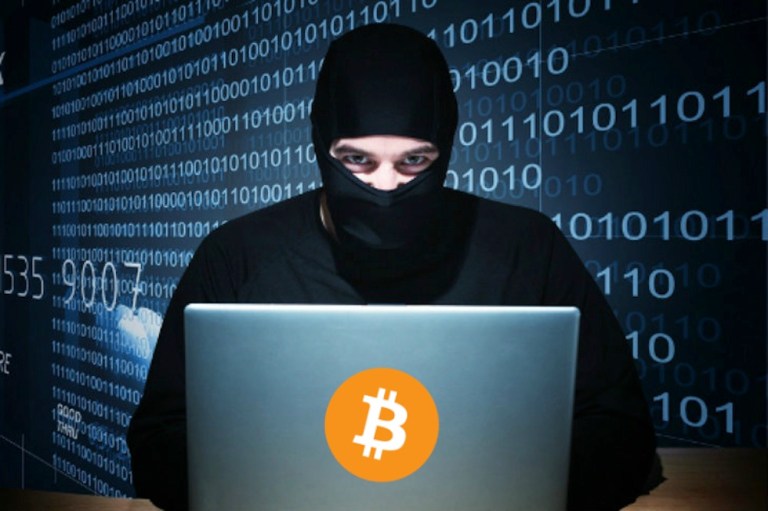Consider the difficulty in stashing an intangible digital currency into a swag bag. But then, hacking into bitcoin user accounts is no walk in the park either. Confidence in the security and safety of digital currency transactions has hit new lows after the Bitfinex exchange theft in Hong Kong on Tuesday (Aug. 2).
The loss of $72 million worth of bitcoin from hacked user accounts, almost 120,000 units, marks the second largest security breach of a digital exchange and the value of bitcoin plunged over 23 percent after the news broke.
The short-term effects of such a breach are tragic enough for bitcoin, which is struggling to regain July values, but the long-term damage to bitcoin’s reputation as a viable and safe currency can be much harder to reverse. Zane Tackett, Director of Community and Product Development for Bitfinex, attempted to stem the double hemorrhaging of the plunge in currency value and consumer confidence. Whether Tackett’s statement claiming that the theft did not “expose any weaknesses in the security of a blockchain,” was convincing may be borne out by the coming price shifts in bitcoin.
Trading on Bitfinex was suspended on Tuesday after the breach was discovered and investigations began. There was no news on whether the theft was the handiwork of external hackers or an inside job but, either way, the thief has a problem.
Every bitcoin transaction is public, which makes it difficult to launder stolen bitcoins because the coins can be followed as they are traded. But as any self-respecting hacker well knows, there are tools that can hide the origination of bitcoins. For example, mixers combine clean coins with stolen coins to make the stolen coins difficult to track, and tumblers mix coins, swapping them among users and simulating transactions. Both systems require “legitimate” users to provide the mix in which to launder stolen bitcoins. Thus, hackers might need some time to offload their sizable cache, giving investigators more opportunity to trace the coins.
Since the news broke, bitcoin prices have plunged to $514 but have rebounded to $576, but this is still well below the prices seen in July.
LexisNexis and Elliptic To Curb Bitcoin Money Laundering
Advertisement: Scroll to Continue
With what seemed like perfect timing as far as user trepidation is concerned, LexisNexis, which provides anti-money-laundering systems to banks, and Elliptic, a startup bitcoin security firm, announced a joint effort to control the use of digital currency for terrorism financing and drug trafficking. Although the partnership is not offering security systems, it should placate concerns associated with potential fraudulent or illicit activities. The two entities hope to be able to provide financial firms with bitcoin transaction data that will identify money launderers and prevent firms from transacting with undesirable parties. All good in theory.
Elliptic CEO James Smith said, “By integrating LexisNexis Risk Solutions’ robust watch list data, we are making it safe for a new wave of financial institutions to handle bitcoin and bank bitcoin companies.”
The startup already closed a $5 million Series A round, which was led by Paladin Capital Group, a venture firm linked with the U.S. defense industry. With the recent theft, the partners have the perfect opportunity to show their mettle, or at least to find out who took the latest stash.
Could Africa Be The Stage for Bitcoin’s Star Performance?
Bitcoin enthusiasts believe that it may be poised to change the economics in Africa. On a continent where increasing amounts of bitcoins are traded by M-Pesa and firms are encouraging users to avoid high fee-charging money transfers, a mobile money system based on the currency could allow the unbanked cheap access to banking and financing. The unbanked in Africa amount to two-thirds of the population, but one obvious problem, however, is that three-quarters of Africans do not have internet access.
Nevertheless, ICE3X, BitX and BitPesa are established bitcoin online currency exchanges, and LocalBitcoins.com is a peer-to-peer trading site on which nearly KES10 million was traded in one week, reported The Guardian. Build it and they will come?
Ghana Dot Com launched Africa’s first mining facility in March, and African banks are actively exploring blockchain. Concerns surrounding price volatility and security are hampering bitcoin’s popularity, and potential regulation could either diminish the potential of bitcoin or increase user confidence and its appeal as a legitimate currency. But if bitcoin can find success in a financially beleaguered country such as Africa, blockchain will be a whole new ballgame. That’s a big if.
Bitcoin Prices
Bitcoin has been showing a bearish trend over recent days after secret meetings of bitcoin miners, insecurity surrounding hard forks, the yuan devaluation and, of course, the Bitfinex hack. Still, some analysts believe that external events do not necessarily determine the price movement so much as the “social mood” among traders. Whatever the disposition of analysts and traders, the general consensus lately has been “sell.”
Whether this social mood will continue is anyone’s guess, but there are no indicators yet that the price of bitcoin has bottomed out. Price corrections can continue for a few days after volatility and sharp price movement. A comment by James Lynn, U.K. managing director of Billion Group, has not helped to buoy up bitcoin prices. In the wake of the Bitfinex debacle, Lynn predicted more bitcoin hacks, which will continue to fuel the security fears of potential cryptocurrency users and raise questions about why we should be giving this topic the time of day as a solution to moving trillions upon trillions of money around the world.




